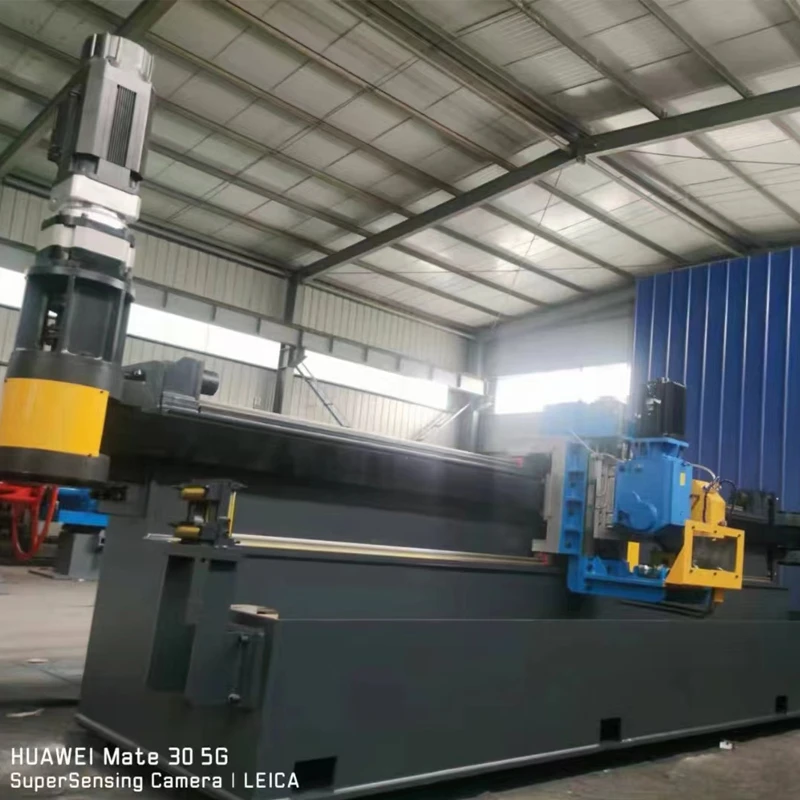cnc mold making
CNC Mold Making Revolutionizing Manufacturing Processes
CNC (Computer Numerical Control) mold making is a sophisticated and highly efficient manufacturing process that has transformed the way molds are produced for various industries, including automotive, aerospace, consumer electronics, and medical devices. The integration of CNC technology into mold making has not only improved precision but also accelerated production speeds, reduced costs, and enhanced design capabilities.
Understanding CNC Mold Making
At its core, CNC mold making involves the use of computer-controlled machines to cut, shape, and create molds from various materials, primarily metals and plastics. The process begins with a detailed design typically created in CAD (Computer-Aided Design) software. Once the design is finalized, it is converted into a format readable by the CNC machine, translating the intricate details of the mold into precise movements.
CNC machines, equipped with high-speed milling, laser cutting, or electrical discharge machining (EDM) capabilities, can produce complex geometries that would be nearly impossible or prohibitively expensive to create using traditional mold-making methods. This precision allows manufacturers to achieve tighter tolerances, which is crucial in industries where even minor imperfections can lead to significant issues down the line.
Advantages of CNC Mold Making
1. Precision and Accuracy CNC technology enables mold makers to produce components with extraordinary accuracy. The machines execute commands with a high degree of precision, ensuring that each mold meets the exact specifications required for production.
2. Efficiency and Speed The automation involved in CNC mold making significantly boosts production speed compared to manual methods. Complex molds that would take weeks to create manually can often be produced in a fraction of the time, allowing for faster product development cycles and quicker time-to-market.
3. Cost-Effectiveness While the initial investment in CNC machinery can be substantial, the long-term savings are considerable. The reduced labor costs, minimized waste, and improved production speeds contribute to lower overall costs in mold making.
cnc mold making

4. Design Flexibility CNC mold making accommodates intricate designs and can be easily modified to adapt to new product specifications. This flexibility allows manufacturers to respond swiftly to market changes and customer demands.
5. Consistency and Reproducibility One of the critical advantages of CNC technology is its ability to produce identical molds consistently. This uniformity is essential for large-scale production, where any variation can lead to defects in the final product.
Applications of CNC Mold Making
CNC mold making is utilized across various sectors. In the automotive industry, molds are created for components such as dashboards, bumpers, and interior fittings, where precision is vital for safety and performance. In the aerospace sector, the manufacturing of custom molds for intricate parts ensures that components meet strict regulatory standards.
The consumer electronics industry also heavily relies on CNC mold making for products like smartphones, tablets, and home appliances. The need for aesthetically pleasing and functional designs drives the demand for advanced mold-making techniques. Additionally, in the medical field, CNC-produced molds are used to create precise equipment and devices, including prosthetics and surgical tools, where accuracy can directly impact patient outcomes.
Future Trends in CNC Mold Making
The future of CNC mold making looks promising, with advancements in technology continually improving processes. The integration of artificial intelligence (AI) and machine learning into CNC systems is expected to lead to even greater efficiencies, enabling predictive maintenance and real-time monitoring of production processes. Moreover, 3D printing technologies are also emerging as complementary processes that can work alongside CNC methods to create hybrid molds, offering further design possibilities and reducing lead times.
In conclusion, CNC mold making represents a profound shift in the manufacturing landscape. Its ability to produce high-quality, precise molds efficiently has made it an indispensable process in modern industry. As technology continues to evolve, CNC mold making will likely expand its capabilities, opening new avenues for innovation and efficiency in the manufacturing sector. Embracing these advancements is key for businesses looking to stay competitive in the ever-evolving global market.
-
High Frequency Straight Seam Welded Pipe Production Line-BzZhou Xinghua Machinery Equipment Manufacturing Co., LTD.|Precision Welding, High EfficiencyNewsJul.30,2025
-
High Frequency Straight Seam Welded Pipe Production Line|BzZhou Xinghua|Precision Welding&EfficiencyNewsJul.30,2025
-
High Frequency Straight Seam Welded Pipe Production Line - BzZhou Xinghua|Precision Engineering&EfficiencyNewsJul.30,2025
-
High-Frequency Straight Seam Welded Pipe Production Line-BzZhou Xinghua Machinery Equipment Manufacturing Co., LTD.NewsJul.30,2025
-
High-Frequency Straight Seam Welded Pipe Production Line-BzZhou Xinghua Machinery Equipment Manufacturing Co., LTD.|Precision Manufacturing, High EfficiencyNewsJul.30,2025
-
High Frequency Straight Seam Welded Pipe Production Line-BzZhou Xinghua Machinery Equipment Manufacturing Co., LTD.|Precision Steel Pipe Manufacturing&Industrial EfficiencyNewsJul.29,2025


